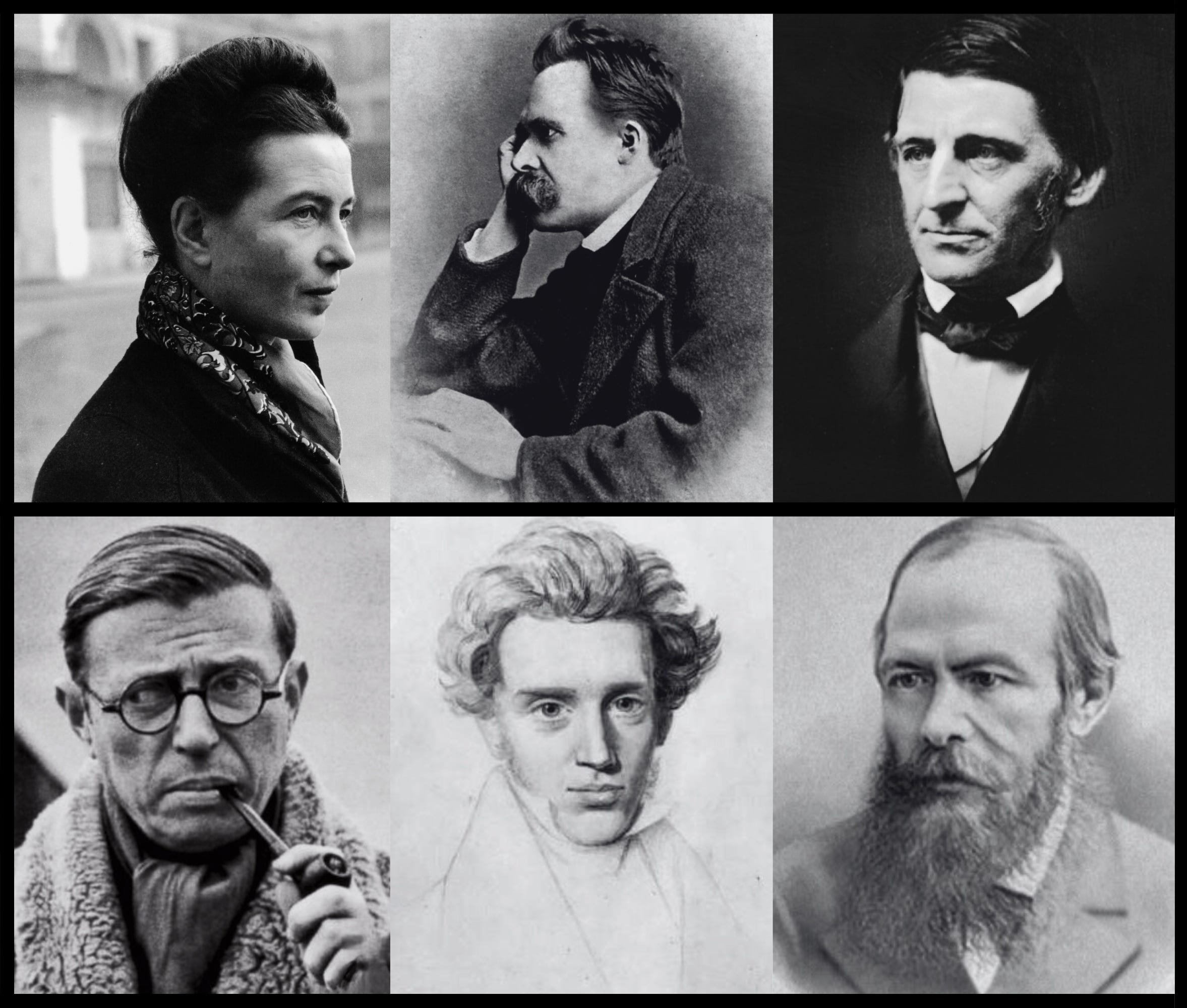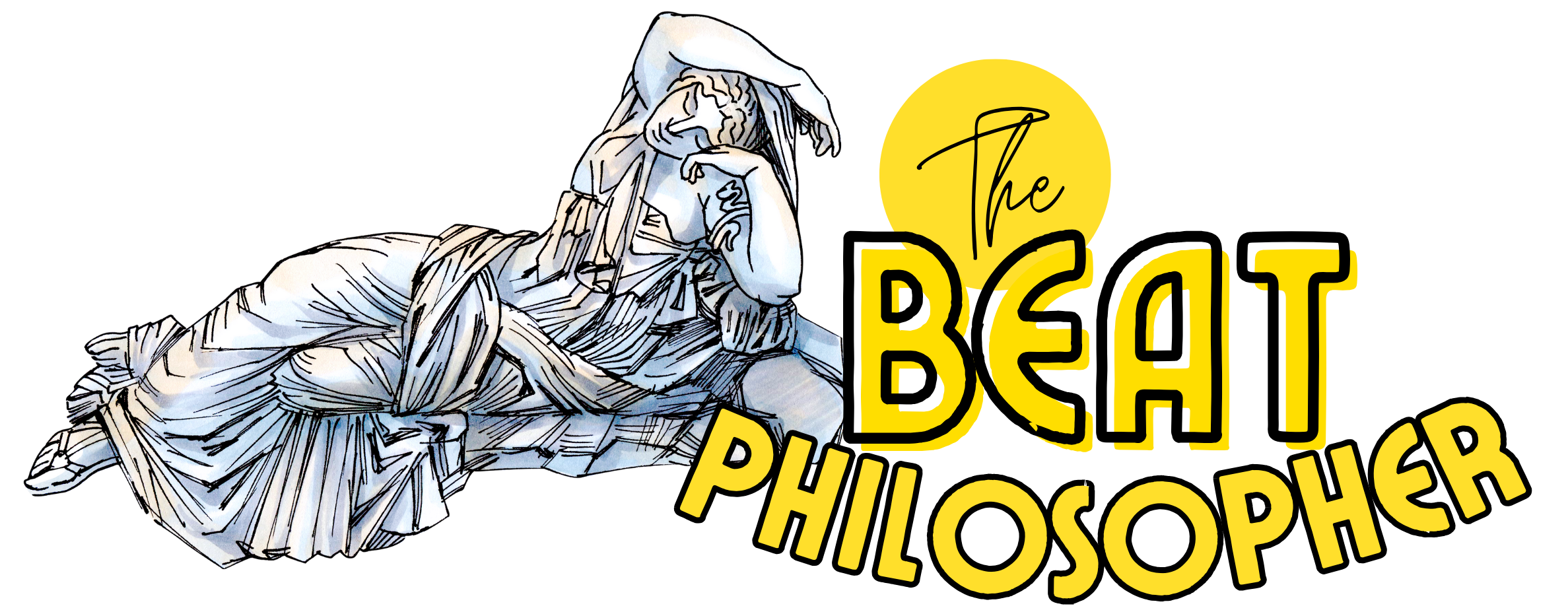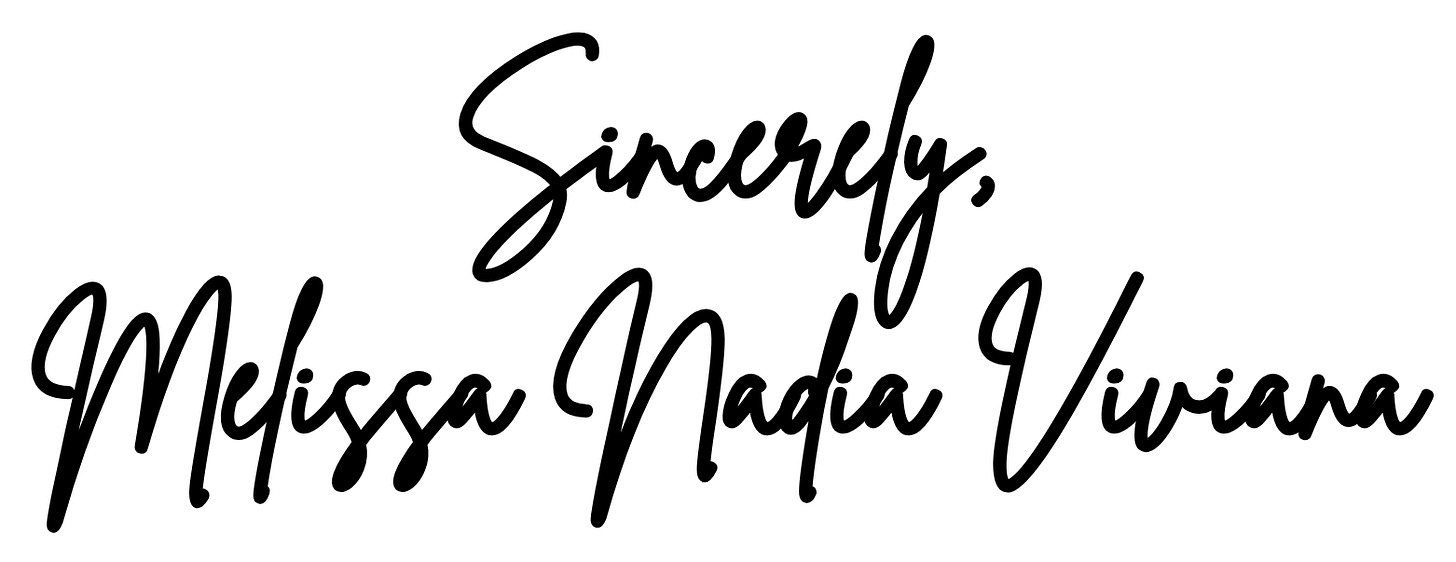Can Societies Filled With Individualists Ever Work?
And Are We Doomed To Be Ruled By The Tyranny Of The Mediocre Among Us?
The Beat Philosopher is a reader-supported publication by Melissa Nadia Viviana; Author, Activist, Existentialist, & Philosopher.
To receive new essays exploring the current problems of our world through a philosophical lens consider becoming a free or paid member.
There are no schools of thought that have obsessed over the benefits of being an individual vs the benefits of being in a group more than the Existentialists & Transcendentalists.
The Danish, Christian Existentialist, Søren Kierkegaard, famously said,
“Had I to carve an inscription on my tombstone, I would ask for none other than ‘The Individual.’”
And the American, Christian Transcendentalist, Ralph Waldo Emerson said,
“To be yourself in a world that is constantly trying to make you something else, is the greatest accomplishment.”
Both of these Christians were unique in that they felt that God was something to be found within them—apart from the Church and apart from group faith. Emerson found it in nature. Kierkegaard found it in a leap of faith (he coined the expression) & the confrontation of his own anxiety.
Friedrich Nietzsche wasn’t a Christian at all—in fact, he infamously regarded the concept of God to be dead and no longer useful in the 19th century.
But he’s still lumped together in a category with Søren Kierkegaard, Russian Novelist, Fyodor Dostoevsky, and many post-war, French Philosophers—like Jean-Paul Sartre—because despite having unique views of the world... what they all had in common was a belief that the answers we seek lay within us.
Essentially, that individualism saves us from the mediocrity of the crowd….
(Continue reading on my new website!)
All Rights Reserved © 2025 Elephant Grass Press, LLC








Great article and questions. Some thoughts...
The "masses are mediocre" but one positive reading might be that they do care more than masses of the past - they are just misguided, or, more accurately put, misaligned with the methodology of the scientific process. So, despite their attempts to engage intellectually with what they see in the world around them, they come up short in their pursuit of a better opinion.
For example, the masses of the past may have effectively shunned giving much thought to political issues, merely consuming broadcast media content passively and mainstream opinion. Whereas the masses of the moment may listen to certain podcasts or disruptive information streams and entertain counter-narratives to the mainstream as they try to make sense of the world. To give this all a generous (and genuine) reading, this is a more "active" engagement with media.
However, the masses of the moment are typically not trained in the scientific process, the journalistic process, or philosophy. Thus, they are ill-equipped to become what they need to be - which is something akin to a newspaper editor... someone who has training to make a start on determining fact from fiction. The reason members of the masses now need this skillset is because much of the current media landscape - such as certain "news" channels - are found to merely be entertainment (as opposed to news) media. In addition to this, most podcast producers have given up on the role of being a journalistic editor. Or were never interested in that role to begin with.
So, the modern media landscape has pushed that editorial responsibility onto the consumer. And that is a high bar to place on your typical listener, reader or watcher. In a more educated society this could be an amazingly powerful situation - one where a broad cross section of society could participate in society's information feedback loop. This could allow, and indeed empower, the continued growth of the individual and society. But, if that is they way forward, then a radical round of intellectual tooling needs to be introduced into our education systems. And incentives in the media landscape need to move towards rewarding journalistically standardised information rather senseless soup.
Relating this back to the second part of question (1) - 'How are herds of "unthinking & unquestioning" individuals manipulated in society?' - we see that, for all the benefits of deinstitutionalising news & information media, we have lost an important role - that of the journalistic editor - in the process. And, next linking to question (6), I think that the group (or perhaps, more specifically, our societal systems) can play a very significant role in enlightening the individual. And perhaps the most important thing the group can give the individual is a range of methodologies that let the individual become informationally self-sufficient. But, ultimately, it will have to be the individual that undertakes the journey. This is for one reason alone - nobody can think for you. Each individual needs to become a better editor. Perhaps that is the path. And to drift off the path dooms one to blind conformity, mediocrity and being co-opted by tyranny.
🤔 Human beings are social and (of necessity) political animals. Their potential is liberated by others, and through recognition by others. The absolute solitary individual is in fact de-natured and can't flourish.
There's a limit to the number of possible political formations of humans, of which democracies are the least worse. OTOH, the modern liberal bureaucratic State is the prime agent of no-feudalism, and the destruction of both the collective and the individual, such that it is fast losing legitimacy and inviting the dragons of the outer darkness in its place.